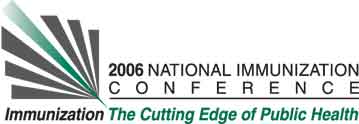Matthew F. Daley1, Lori A. Crane
2, Brenda L. Beaty
3, Jennifer Barrow
3, Christine Babbel
3, Nicole Liddon
4, Lauri Markowitz
4, Shannon Stokley
4, Eileen F. Dunne
4, Miriam Dickinson
5, Stephen Berman
1, and Allison Kempe
1. (1) Dept. of Pediatrics, Univ. of Colo. HSC, Children's Outcomes Research Program, The Children's Hospital, 1056 E. 19th Avenue, B032, Denver, CO, USA, (2) Dept. of Preventive Medicine & Biometrics, University of Colorado Health Sciences Center, 4200 E 9th Ave, Box B-119, Denver, CO, USA, (3) Colorado Health Outcomes Program, University of Colorado Health Sciences Center, P.O. Box 6508, F-443, Aurora, CO, USA, (4) National Immunization Program, Centers for Disease Control and Prevention, 1600 Clifton Road, NE, MS E-52, Atlanta, GA, USA, (5) Dept. of Family Medicine, University of Colorado Health Sciences Center, 4200 E 9th Ave, Box B-119, Denver, CO, USA
Learning Objectives for this Presentation:
By the end of the presentation participants will be able to describe pediatrician attitudes regarding human papillomavirus (HPV) vaccination.
Background:
An HPV vaccine to prevent cervical cancer and genital warts may be licensed soon, targeted at adolescents.
Objectives:
To assess knowledge and attitudes of pediatricians nationally regarding HPV vaccination.
Methods:
A survey was administered to a national network of 431 pediatricians, developed for the Vaccine Policy Collaborative Initiative from a random sample of American Academy of Pediatrics (AAP) members. The network was designed to be representative of the AAP with respect to urbanicity, practice type, and region. Bivariate analyses were performed to predict likelihood of giving HPV vaccine to females 10-12, 13-15, and 16-18 years old.
Results:
Response rate: 69%. If recommended by ACIP, 46% of pediatricians reported being likely to give HPV vaccine to 10-12 year olds, 77% to 13-15 year olds, and 89% to 16-18 year olds. Factors associated (p<0.05) with being likely to give HPV vaccine to all age groups: thinking >=10% of respondent's 13-15 year old patients were sexually active; belief that new adolescent vaccine recommendations will facilitate introducing HPV vaccine; knowledge that effective HPV vaccines are under development. Factors associated with being unlikely to vaccinate: considering it necessary to discuss sexuality prior to vaccination; belief that parents refusing vaccination will be a barrier; thinking parents of 10-12 year olds would be upset if a vaccine against a sexually transmitted infection was offered to children this age. Although 11% were concerned that HPV vaccination might encourage risky sexual behaviors in adolescents, 60% reported that parents would have this concern. Inadequate reimbursement was identified as an important barrier to vaccination, reported by 36%.
Conclusions:
A majority of pediatricians reported being likely to give HPV vaccine, particularly to older adolescent females. However, concerns about reimbursement and parental acceptance of vaccination exist.
See more of Posters
See more of The 40th National Immunization Conference (NIC)

